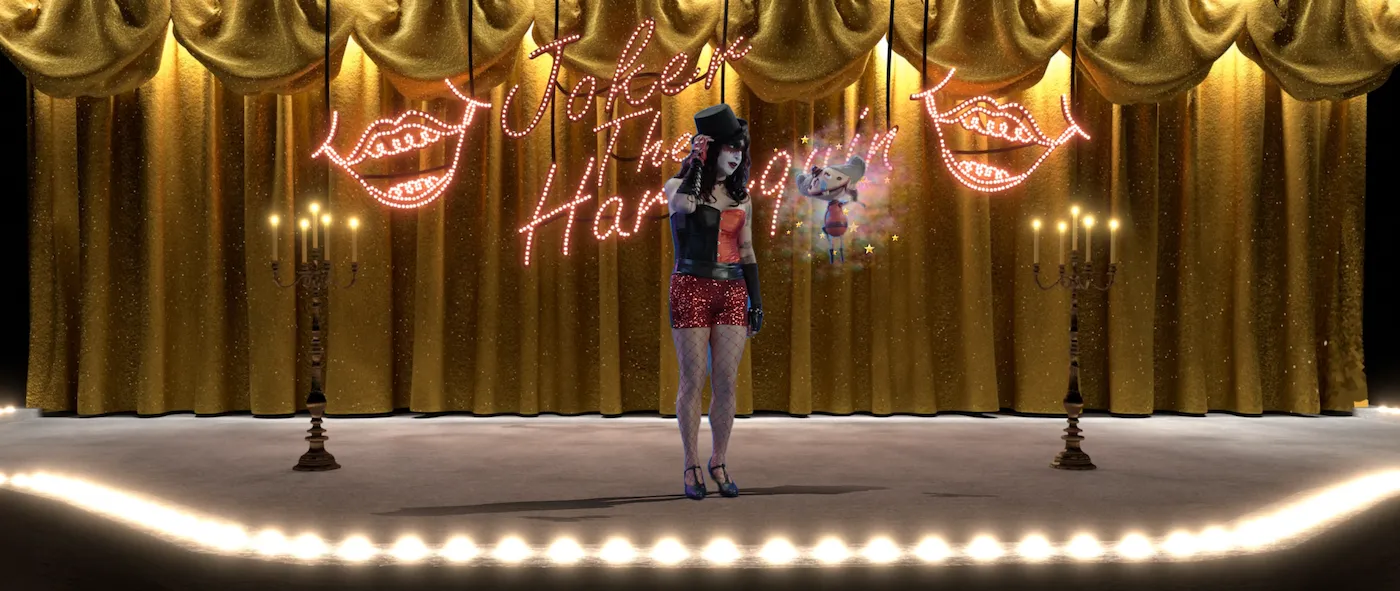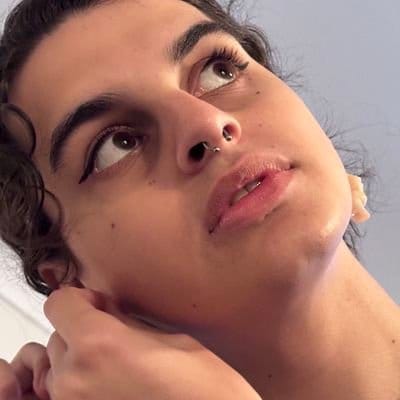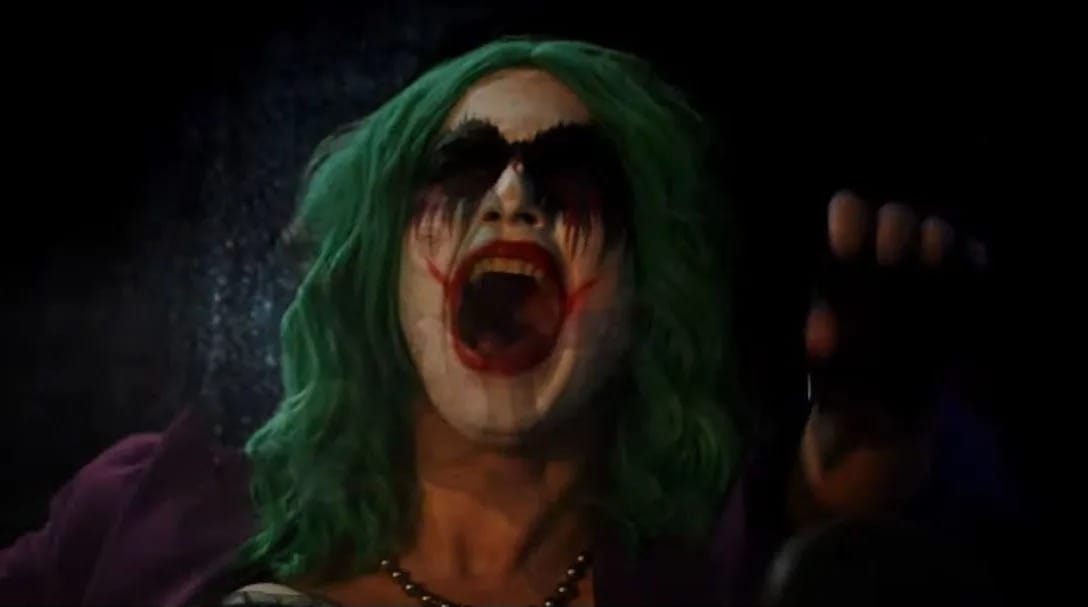One of my favourite films of all time is Todd Haynes’ Superstar: The Karen Carpenter Story (1987). It’s a reasonably infamous bootleg biopic from the 80s, mostly known for casting Barbie dolls instead of humans, and tells the unfortunately true story of Karen Carpenter who, along with her brother Richard, was one half of soft-rock power duo The Carpenters. Karen’s personal life was unbearably tragic, as the pressures of fame and family took a tremendous toll on her mental and physical health, and she died far too young at age 32 of heart failure related to her struggle with anorexia. Haynes does not pull any punches as far as these truly painful aspects of Karen’s life are concerned, and, as such, the film is deeply disturbing, drawing an unbelievable amount of emotion and sheer, raw power out of the Barbies and Kens that make up the cast.
Haynes was particularly unkind to Richard, who is presented as an overbearing and abusive presence in Karen’s life, forcing her to perform despite her rapidly deteriorating health and, ultimately, contributing to her untimely death. As a result, Richard sued the film on the grounds that The Carpenters songs were used without the rights for them being attained (which, of course, was true). No matter how legally justified Richard was in this decision, in the 35 or so years since the film was made, the common perception has been that to sue was the act of a deeply guilty individual, one who couldn’t bear that the world would finally see him for who he really was. In the story that exists in most people’s minds (certainly mine), Karen was a generational talent with the voice of an angel, abused by almost everyone around her into an early grave, and Richard is just one of the people who put her there.
After Vera Drew’s The People’s Joker made its big screen debut at the Toronto International Film Festival last year, Warner Bros. issued a legal threat towards the film’s producers over its unauthorised use of characters such as “The Joker” and “Batman”, who are the intellectual property of sister company Detective Comics. This was, of course, a huge mistake. Despite the fact that, over 7 months after that initial TIFF screening, the film still needs to be screened in (open) secret, lest WB decide to unleash their army of suits and ruin everyone’s fun all over again, that initial legal threat against the film created more buzz and excitement for The People’s Joker than anyone could have imagined.
What’s that you say? There’s an illegal, queer Joker parody movie that Warner Bros. doesn’t want me to see? Well, I simply must see it immediately!
And it wasn’t just that the movie was “illegal” either, the few people who had seen it had responded really well! People loved it!
Which, I guess, is where I come in. I can’t exactly remember where or when I first heard about The People’s Joker. I feel like I caught wind of it through the usual trans/film Twitter grapevines, but I can say for sure that I really became aware of it some time around September last year, either just before or just after it screened at TIFF. The lovely people at Static Vision (a Melbourne cinephile staple and some of the coolest people around) were putting on a film festival and, wouldn’t you know it, screening a little movie called The People’s Joker. I read the synopsis, and almost immediately bought myself a ticket. I mean, goddamn, has there ever been a movie more laser-targeted at me? A legally dubious, crowdfunded, multimedia, collaborative, trans, coming-of-age drama/comedy written/directed/edited by and starring a Tim and Eric alum? Sign me up!
Of course, legal shenanigans ensued and the movie got pulled, so I swapped my ticket out to see Lux Æterna (2019) instead and that was that. At this point, I’m obsessed though. Suddenly, I’m telling everyone I know about The People’s Joker and how cool and crazy it looks, and how I need to see it one day (seriously, just ask my partner how much I’ve talked about this fucking movie, it was getting a little ridiculous). Fast forward to not too long ago: Fantastic Film Festival Australia announces their 2023 line-up and there’s something on there called “AN UNTITLED AND PERFECTLY-LEGAL COMING-OF-AGE PARODY FILM” which looks oddly familiar… Has the moment finally come?
Naturally, I got very excited, only to be immediately deflated upon realising I had plans the day of the screening, and wouldn’t be able to go. I told everyone I saw for WEEKS about this tragic turn of events, pitching the movie over and over again until, 2 days before, I broke my plans to go to the movie instead. It was too late to make the sold-out session with a post-screening Q&A with the writer/director/editor/all-around superstar, but luckily FFFA had added a second screening with an in-person intro and I’d be able to see it after all! All this anticipation and heartache and, finally, I’d (almost certainly) be seeing The People’s Joker.
I had this awful, awful feeling going in that I’d hyped myself up too much, that there’s no way this movie could ever live up to my expectations and that, after all of this, I’d be leaving the cinema disappointed….
Nope! Dead wrong!
Anyways, that’s enough meandering, it’s time I actually wrote a review of the film:

The People’s Joker is about a transgender comedian named Joker the Harlequin, set in some version of the DC Comics universe, completely unauthorised by Warner Bros. It employs a mixed-media aesthetic, combining the standard Tim and Eric green-screen aesthetic with animation both 2D and 3D (in many different styles), footage clearly shot on people’s phones in their bedrooms, artificial environments both computer-generated and hand-drawn/painted, and is one of the funniest films I’ve seen in god knows how long, with some absolutely all-time gags, such as naked CGI Lorne Michaels slipping on a banana peel and falling down a flight of stairs, or recurring ads for in-universe hit tv show “Suicide Cop”. Even just the mere presence of certain characters (such as Nathan Faustyn’s take on The Penguin) was enough to make me crack up several times throughout. Seriously, it’s a funny fucking movie.
The film was produced throughout the COVID-19 pandemic (Drew said in the intro she gave that it wouldn’t exist without COVID) and was heavily collaborative. She allowed for open submissions from creatives to be part of the film, hence all the mixed-media. But to me, this held a lot of thematic resonance as well. Beyond just the reality of making the film, that it helped all the people involved in making it keep connected throughout a global catastrophe, the communal creation of a piece of art like this really hammers home the sense of found-family and community present in the film. It reminds me not only of how creative people can be, but how kind they can be as well, and the power that people have when they work together.
To describe it as a comedy, however, I feel, is a bit of misrepresentation. Because this is a deeply personal film and it functions as well as a dramatic piece as it does as a comedy (better even). Drew nails every single sincere emotional beat she attempts, and the end result had me moved to tears every few scenes starting at around the 15-minute mark.
The film is largely autobiographical, drawing upon Drew’s own experiences of transitioning, drug addiction and relationships. Because this is a queer film made by queer people about being queer, the end result is one of the most poignant expressions of transfemininity and queerness and the messy entanglements of relationships and family and gender and the whole fucked-up mess of it all that has or ever could exist. My life has not followed the same path as the one presented in the movie, but I was able to see so much of myself on the screen that I couldn’t help but feel overwhelmed and overjoyed at the seriously radical possibilities of representation that were being explored here.
In and of itself, this is a movie about representation, with Joker grappling with the possibility of filling that role for people like her, and exploring what representation would have meant to her growing up, almost as if Drew was talking through the screen, asking what she can do for us. It’s so hard to describe the feeling of seeing yourself on the screen when you’ve been deprived of it for so long. It’s like a jigsaw falling into place before your eyes, as the pieces of your fractured self start to come together to form something resembling a person you can be proud of. I’m transgender (obviously), but also, for most of my life, I’ve been pretty obsessed with DC too! Particularly The Joker, a character that meant an immense amount to me growing up and whose on screen iterations have been.. lacking in recent years, to say the least (one of these iterations, Jared Leto’s infamous take, is actually reworked into a major character in The People’s Joker, to great effect).
What Vera Drew does here is take a character which clearly means as much to her as it does to me and so many others and completely makes it her own, in the process demonstrating once again why we love these characters so much and why we (I) see so much of ourselves (myself) in them. And to do it with such an unabashedly queer story, one that hits so close to home, god it just means the world to me, truly. It’s the first time I’ve seen a movie capture the deep beauty of T4T relationships. I bawled my eyes out during the Tunnel of Love scene because it reminded me so much of my partner and the power of having someone else finally see you for who you are. What Vera Drew and co achieve here is nothing short of magic, maybe the most authentic, personal and resonant expression of transfemininity I’ve ever seen put to screen, blazing a new path forward for the possibilities of what trans people are allowed to do and be in movies. If we can be The Joker, then what’s stopping us from being literally anything else we want to be?
I hope one day The People’s Joker is truly freed and I get to see it again, and again, and again. Until then, it’s going to occupy a special place in my heart for a very long time. I feel better after seeing this movie. Better about myself, better about the world, just better.
Vera Drew, if you ever read this, thank you. Not just for making an incredible film, but for making one that makes me feel like the world can be a better place than it is right now. An incredible film that made me feel less alone. I needed this, more than I ever could have realised, so thank you.
Ordinarily, I would sign off one of these reviews by writing some corny line about the magic of cinema or trying to summarise my thoughts, but I’ve written enough about the magic of cinema and I have far too many thoughts to summarise, so I’m going to end by writing about something more important.
In our current political climate, it’s becoming increasingly scary to even exist as a trans person. We’ve observed the steady rise of transphobic sentiments in the media over the last few years, and now we’re finally seeing this rhetoric bleed into policy which restricts access to trans healthcare and makes it increasingly difficult to exist as a trans person in society. There are currently hundreds of anti-trans bills being drafted and passed across the US which restrict access to gender-affirming care and trans people’s abilities to exist in public society as a trans person. A bill passed recently in the state of Missouri which effectively bans access to such care for most trans adults. In the UK, the media is at the behest of bigots and is consistently pumping out anti-trans coverage with very little to positively counteract it or draw attention to the deeply draconian and Kafkaesque trans healthcare system under the NHS. In Australia, Nazis have started appearing at anti-trans rallies in support of hateful bigots masquerading as “feminists”.
Unless we fight it, this won’t stop. Gender affirming care is healthcare. It saves lives. And any attack on people’s access to that healthcare is a direct attack on people’s livelihoods. Cis people, stand in solidarity with the trans people in your life (whether you know it or not, they do exist) and educate yourselves about what has been happening and what you can do about it. Trans people, know that we will survive this, and that together we’re stronger than anyone who hates us.
It’s when I see movies like The People’s Joker that I feel less afraid. It makes me feel powerful. It makes me feel like myself.
The People’s Joker is currently seeking distribution. Superstar: The Karen Carpenter Story can currently be watched on YouTube here. Fantastic Film Festival Australia is currently running in Melbourne and Sydney until April 30th, with more info available here.

